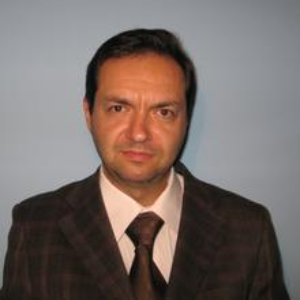Title : The almost cybernetic structure and evolution of brain tumors
Abstract:
The human body tumour lesions are almost ordinary events in its life. Almost every people has moles. The moles are in fact small tumours, which normally doesn’t grow but in certain condition, triggered say by mechanical or radioactive events may become to have an uncontrollable growing. This is the case with every type of tissue in the body, when some internal or external stress factors interrupt its normal communication with the entire body, being no more under a normal control of the autonomic nervous system. Cancer cells are cells taking their life on their own hands and this could be a normal behaviour of a cell, external signals intended to change the cell state, including apoptosis, being reprogrammed for proliferation and dedifferentiation and conveyed to the genes residing in the nucleus. Tumours growth has some characteristics like spatial and temporal heterogeneity, clone and subclone, genomic instability. There are three stages in the immune escape process: clearance, equilibrium and escape. There are also three models of evolution. The first model has four stages linear, branch, convergent and parallel, function of the state of dissemination. The second model is the neutral evolution or big bang model, where the cell growth rate remains the same and it is characteristic to digestive cancers. The third model, punctuated evolution, is similar to the second model but after a long period of stagnation a new stage of evolution is acquired. The results of cancer cells evolution are drug resistance and immunotherapy resistance. There have been issued some methods for no intruding cancer treatment: radiotherapy, near infrared therapy and low frequency ultrasound to mention some of them. Every of them are not effective in all type of cancers but the results are encouraging. Combined with immunotherapy methods the results were improved. It deserves to mention the term “spontaneous remission” when patients with cancers in terminal stages were sent at home with a life hope of few months but they return back after many years safe and sound for a new control. During recent decades the disciplines of cybernetics, non-linear dynamics, stability theory and synergetic, the last three parts of the system theory have emphasized the importance of small fluctuations, drastically altering a system behaviour. Using a system theory approach Roy has attempted an analysis approach of tumour destabilisation. Cybernetics along with System Theory forms a universal theory of action applicable to the full range of medical sciences.
Audience Take Away
- The audience will have some proposals for improved methods for the discontinuation of tumors evolution
- People working in the field of neurology can use these models to emphasize the importance of small fluctuations, drastically altering the system behaviour
- This research work can be extended to other faculties in the bioengineering field, to expand their research or teaching area
- The audience will assist at simulations of the interactions between no intruding treatment methods, the lesion site and the entire body, all seen from the perspective of the system theory




